“They ask us ‘How did you get so controversial?’ and Dickie and I always say:
‘We were there at the scene of the accident!’ ” - Tom Smothers
My Conversation with Tom Smothers
By Mariah Fleming
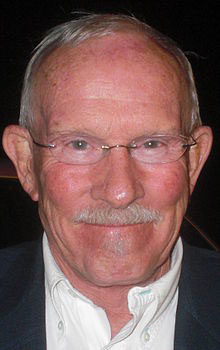
Talking to Tom Smothers in a long phone interview is something I never expected I’d be lucky enough to do. He is a comedy legend, and a legendary activist. Watching the Smothers Brothers was beyond funny. As a kid in the 1960’s, I religiously watched the Smothers Brothers Comedy Hour. Every week I’d turn on CBS to watch their show and be completely transfixed by consistently thought provoking and clever satire. Characters like Pat Paulsen, Super Dave Osborn and Leigh French were, without fail, fresh and full of surprises. And of course, I never got enough of watching the Smothers Brothers do their thing.
The show opened up a whole new musical and comedic universe to me, and had a profound affect on my own political consciousness. It made me ponder important issues and laugh at the same time. The courage to “speak truth to power” came alive for me on that show. Even then, I was struck by the array of wonderful talent of all stripes: music, sketch comedy, and comedians. The 1960’s were a confounding and transformative time.
Powerful things were going on in the country, both good and bad. And on the Smothers Brothers Comedy Hour, they actually talked about things that were happening socially and politically in 1960’s America. It was clear that someone brilliant, fearless, generous and ahead of his time was calling the creative shots on the show. That was Tom Smothers. And that’s what suddenly got their hugely popular show jolted out of our living rooms. But the powers that be could never erase it from our consciousness.
Last week I had the honor of talking to Tom Smothers. He spent more than half an hour on the phone with me. Originally, I had just hoped for an email interview to some questions I sent. He asked to call me instead, and he told me when he called: “After I read your note about what the Smothers Brothers Comedy Hour meant to you when you were a kid, it was so sweet I wanted to call you.”
Our conversation was sublimely interesting and utterly delightful. Editing it into bits and pieces couldn’t do it justice. His authenticity, warmth and humility surprised me. It took my breath away to hear for myself that Tom Smothers is just as brilliant, fearless, generous and ahead of his time as he was then. So, here it is, as it was. Enjoy the ride.
Q. What came first for you, music or comedy? And how did the Smothers Brothers as a comedy act evolve?
A. Oh, listen! (laughs) This is the greatest thing that happened! Talk about luck! I had terrible learning disabilities from the time I was a little kid, couldn’t count! Couldn’t read ‘til much later in life, and I was the dumbest kid in school! I got into San Jose State, had to take remedial classes in English and Math to get in there! (laughs) But my comedy came out of my Dyslexia. Because, see, I search for words. I don’t stutter but there’s a timing that I discovered that was comedic timing, which is the process of getting to the next sentence or the next idea or the next concept. It’s kind of disjointed and not very articulate but it was a character that could say things.
Q. How does the music fit in?
A. I wanted to be a bandleader when I was eight or nine years old and I started playing guitar. We started singing in choirs and stuff in high school and formed barbershop quartets. We were singing songs like “Boom Sha Boom” by the Crew Cuts (he sings a few bars) I was playing guitar and we had a trio. After I got to San Jose State, my brother joined me a year later. The Kingston Trio had happened and folk singing took off. So I said to myself ‘gosh these are great songs!’ And I started thinking up introductions to ‘em, and not having to sing the whole song because they were all story songs.
And Dickie would say ‘That’s wrong!’ and pretty soon I’d say ‘Why don’t you introduce the song?’ He’d say ‘I don’t know what to do.’ And so I’d try to do it again and he’d say ‘That’s wrong!’ and ‘You’re stupid’ and ‘That’s the dumbest thing!’ and I’d say ‘Mom always liked you best!’ and we developed into a comedy team with the music. But seriously, we tried to sing our best and sing as well as we could but the truth was…well, like Victor Borge was a great pianist but he found his muse in comedy. People used to say to us when we’d come out, when we finished a concert why don’t you guys ever finish a song? And we’d say if we did you probably wouldn’t like it very much!
Music was our underlining, our background, so we had something to go on, so we could sing a song, go out and start to ad lib and find some things and go back to the song. And we became a comedy team. As a writer I can make notes and put them together. I can’t write. The show had writers writing.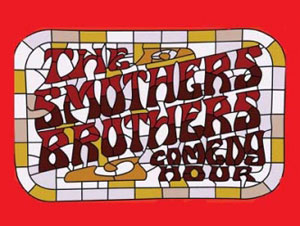 Basically the show was recognized for its sketches and social commentary and satire, not noted particularly for how funny Dickie and I were, but for how good the show was. “They ask us ‘How did you get so controversial?’ and Dickie and I always say: ‘We were there at the scene of the accident!’ In 1988 we got another show, we were really good but the show didn’t have the same spark or cutting edge that the first one did.
Basically the show was recognized for its sketches and social commentary and satire, not noted particularly for how funny Dickie and I were, but for how good the show was. “They ask us ‘How did you get so controversial?’ and Dickie and I always say: ‘We were there at the scene of the accident!’ In 1988 we got another show, we were really good but the show didn’t have the same spark or cutting edge that the first one did.
Q. I watched your show religiously when I was in high school Your generosity to other artists was tremendous. It really wasn’t all about you guys and it could have been. Leigh French, Biff Rose, John Hartford, Jennifer Warnes, David Steinberg
A. Yes but you know something…I love talent, I love bringing people on. During the process of doing this I discovered along the way they reflect back on the show. Bob Hope never had other comics on his show. He didn’t want to be up against other comics for some reason. But I love putting other comedians on the show. Pat Paulsen… (laughs affectionately) Pat always said: “I don’t know why you get shows and I don’t, ‘cause I’m much funnier than you are!” And I said ‘I know that! I don’t know why you don’t either! Maybe you have the wrong attitude, you have to be pretty aggressive and assertive to get these things through.”
All the talent around you reflects back on you. For example, I got Jim Stafford doing a song and playing on the show, and the following week someone said: ‘Man you really play guitar well’ and I said, ‘That wasn’t me, that was Jim Stafford!’ I really believe that all the talent around you reflects back on you. It’s like the cliché, if you give, you get. You keep receiving when you give. That’s always been the case I’ve found to be true. It’s not proselytizing, it’s just the way it is, you give and you always get. It’s the art of giving.
Q. Was your show live?
A. Live on tape. Dress rehearsal tape Friday, edited on Saturday, taped live on Sunday.
Q. What do you think makes a great comedy team?
A. All the big comedy teams, you know, what they were based on was the quality of the straight man. If the straight man wasn’t believable, the audience wouldn’t believe the outrageousness of the comedian. When you think of Dean Martin and Jerry Lewis, Dean Martin was a wonderful straight man. And Dan Rowan…now, Dick Martin was a great comedian but Dan Rowan was a wonderful straight man. George Burns, and Bud Abbot, god he was relentless.
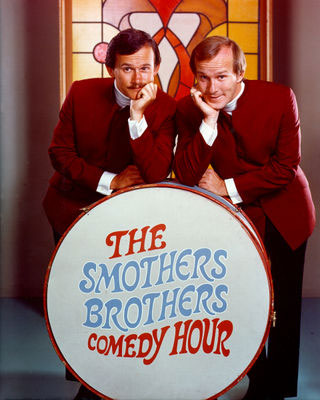 (Pauses) And…and we just had a great career! 52 years! I retired two years ago. I realized when we retired I was just so tired of the travel. In the first six months I was trying to put together aphorisms and was going to put together a one-person show to do some things around, and slowly, six months later, it got quieter and quieter. I found out I was a one trick pony. I have done one thing all my life and that was being a comedian and musician, and performing.
(Pauses) And…and we just had a great career! 52 years! I retired two years ago. I realized when we retired I was just so tired of the travel. In the first six months I was trying to put together aphorisms and was going to put together a one-person show to do some things around, and slowly, six months later, it got quieter and quieter. I found out I was a one trick pony. I have done one thing all my life and that was being a comedian and musician, and performing.
I saw Johnny Carson attending Wimbledon on TV after he retired, just sitting there with his shoulders sort of slumped over, and that posture he had, he was just was so relaxed. I can imagine five days a week doing a monologue and the other stuff! And it took about a year for me and pretty soon it was just ‘drop your shoulders!’ and that’s where I am at now.
Q.Why did you get involved with the Bill of Rights Monument Comedy Show?
A. I wanted to get motivated again. And Chris Bliss, I love that man. We saw him work somewhere, he came down and he opened for us at the Orleans in Las Vegas and then I saw his juggling thing with the Beatles music. It was great stuff. And I realized he was a great fan of our stand up attitude about politics and speaking your mind. And I realized this guy is so deep. Do you know about the “TED” online conversations? Just type it in google. It’s amazing stuff.
Anyway, Chris did this wonderful speech about how his favorite author (Gabriel Garcia Marquez) was from Argentina or something, and the translation of this book he read was really good. Then when he talked to the guy, the author, he told him he liked the translation better. And Chris came up with the concept that everything is translation, not just the book. Everything. What we hear and what we say. And you can say things in comedy you can’t possibly say in other areas.
Q. Clearly Chris Bliss has made an impression on you.
A. I’m a fan of Chris as a person. As a juggler and an entertainer he’s supreme. But his growth as a human being and his interest in rights and his sense of goodness and fairness is just powerful. And he comes with all these wonderful gifts that allow him to do this. I mean, he’s working so hard on this thing and it’s such a great thing.
I watch these younger people, with their youth. There’s a certain audacity that the youth has; it’s hard to carry through though. Pete Seeger did it, and a couple of other people have done it late into their ages. I mean, I was a hero for three seasons, that’s about it, just for a moment. But these people just keep going, and keep fighting the fight all the way through. Chris Bliss is one of those kinds of people that I’ll admire all my life. And Bill Maher is another guy I like that’s out there on the edge. Even though sometimes he goes too far, I like where his brain is.
Q. What do you think of Jon Stewart and Stephen Colbert?
A. Colbert! The greatest thing I’ve ever seen done is the show that he did for the Washington Correspondent's Dinner! Oh my God!! And when I ran into him at the Emmys several years ago, I said ‘Geez, weren’t you scared out of your brains?’ and he said ‘No, not…scared, I was nervous.’ They didn’t know he was going to come in with that kind of material. He skewered everybody. Colbert told me: ‘The funny thing was, I looked over and George Bush was only two seats down from me and the President looked at me and winked at me!’
Q. Back to the Smothers Brothers Comedy Hour. Glen Campbell gives you guys credit for starting his career happening.
A. Well, I produced his first TV show, grabbed him when he was just starting to happen. In those days in TV, when your show went on summer break, you got first choice of who gets your summer break. And so I picked Glen Campbell, put the show together and then went on. What a good talent he is!
Q. When you had the Smothers Brothers Comedy Hour and you got cancelled…
A. We didn’t get cancelled we were fired.
Q. I’m sorry. You were fired, I know, I was just trying to be polite.
A. Yeah, but you know, we got fired! And we resent that. Death is natural causes, and then there’s murder, and we were fired.
Q. Is it true that Nixon had something to do with you being fired?
A. I don’t know. After we were fired, when he was elected, it wasn’t very long after he was elected that we were fired, and our option had just been picked up! T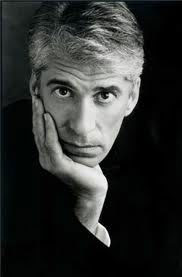 hen someone warned me that there was a federal drug bust thing set up, because we were making too much noise. So I was told to always be with someone and things like that. And sure enough, I was doing a film at the time and it was on Nixon! (laughs) It was a comedy film. It wasn’t very good. It was called “Another Nice Mess” Bob Einstein wrote it, you know, Super Dave Osborn?”
hen someone warned me that there was a federal drug bust thing set up, because we were making too much noise. So I was told to always be with someone and things like that. And sure enough, I was doing a film at the time and it was on Nixon! (laughs) It was a comedy film. It wasn’t very good. It was called “Another Nice Mess” Bob Einstein wrote it, you know, Super Dave Osborn?”
Q. Oh, yeah! I remember Super Dave. What about the film?
A. It was called “Another Nice Mess” and it was two guys who looked like Nixon and Agnew, and Rich Little played Nixon. With a little putty on his face he looked just like him. And a guy named Herb Bolin played Agnew. They sounded and talked and acted exactly like Laurel and Hardy! (laughs) It really should have been a short, not a feature. And I was flying up from Los Angeles to San Francisco. I’m editing at 10 o’clock at night, I missed two flights because it took longer, and my grandfather calls up from up in Sonoma where I’m living and he says: ‘There’s people tearing your house apart!’
So if I’d been there, they would have “found” all kinds of things, of course. I sent letters to the Attorney General of the State of California before all this stuff happened. So anyway, I had to hide out for a little while. There was some stuff going on, and there was no way that they were going to keep that show (Smothers Brothers Comedy Hour) on the air when Nixon was in office. So, we had no direct verification that he knew about it, but I’m sure that he did. In fact, after he got rid of us he developed his enemies list.
Q. Back to the free speech issue. Reagan was responsible for gutting the FCC rules in terms of media ownership…
A. Yeah, that’s right!
Q. Our kids today, if you ask them who runs the media in the U.S., they invariably say ‘the government!’ like, why are you asking such a stupid question! (Tom laughs)
A. Yeah, well, could be, it’s very indirect, but everything’s indirect, I mean, who’s running the government?
Q. At this point it’s anybody’s guess, don’t you think?
A. Seems like it! (laughs) You asked me something pretty interesting before. You asked if I had any political consciousness as a teenager, and I didn’t. I was raised in the Eisenhower years. Came out of World War II and the 1940’s came by and the 1950’s and we were all idealistic. America did good work. My first break in that concept was the U2 flight, when Ike said ‘We don’t do that! We don’t spy on people!’ and then the Russians brought out that pilot, Francis Gary Powers.
Q.The pilot of the spy plane that got caught spying in Russian airspace, right?
A. Exactly. And the Russians said ‘We got your spy plane’ and Eisenhower said ‘We don’t spy!’ and then he (Powers) got on television and they said ‘Here’s the guy’ and it was like ‘Oh yeah, well…’ And I said, ‘Aw, man...the president lies!’ Well, now we know that. But at that time, that was unheard of. And then later on most of my political consciousness happened during the course of the show.
Q.How did the Smothers Brothers Comedy Hour come about?
A. I had a sitcom and we did 32 shows called ‘The Smothers Show,’ a half hour sitcom. I was stressed out by it because it was so vacuous. 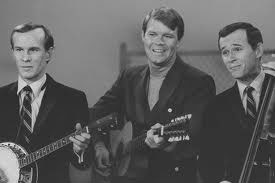 And when it was cancelled after the first season, six months later they said: ‘Would you like a variety show?’ and I said ‘Sure, but I have to have some control over it, not like the other one!’ and they said, “Ok, you’ve got creative control”
And when it was cancelled after the first season, six months later they said: ‘Would you like a variety show?’ and I said ‘Sure, but I have to have some control over it, not like the other one!’ and they said, “Ok, you’ve got creative control”
I told ‘em we just want it not to be vacuous, empty comedy, like the rest of the country was doing! So we started putting facts in, and pretty soon, the voter registration things happened and I was beaten up, ten stitches in my head from a police officer in Terre Haute Indiana, which gave me another bump (in political consciousness) along the way.
Q.Why did that police officer beat you up?
A. It was over some program money after sales of a show, it was minimal but, the police were just…I don’t want to get into that right now, we can talk about that another time, I’ve got a theme going here (chuckles)…
Q.OK! So what else was going on?
A. It was during all the Civil Rights action and stuff in the 60s and people would say ‘Police brutality.’ And others said: ‘they always say that,’ and I thought yeah, maybe…until I personally came up against it. And then I said, ahh! I started thinking maybe a lot of this stuff out there is true!!
And then I got on the TV show and started saying things about the war, and CBS would say ‘You can’t say that!” and I’d say ‘Why not?’ And they would say: ‘Well you just can’t say that!’ and pretty soon I realized that what I was saying must have been important or they wouldn’t try to stop me.
And of course that pushes you, when someone tries to stop you, especially a comedian. When someone says ‘You can’t say that’ of course you feel ‘God damn it, I’ll say it!’ So we did pushback on that. The more the war heated up, and civil rights, and everything else, it became so obvious! And here I am in a national TV show; the only show that’s reflecting the other viewpoint! And it became a growth period.
Near the end of this series, the third year was 1969, I was starting to lose my sense of humor, and as a performer I was losing my ability to do my gift, my art. And I got too involved in issues and the censors and things. So with us guys being fired, even though it was so painful, it took three years to get over it really, and then I got rid of it.
Q.After that, what did you do?
A. We did plays, we did theatre, and then we started working again. Did two or three years of theatre, and when we started doing the Smothers Brothers again…(chuckles thoughtfully) God, we were good; although the shows never took off. It was a different time. So we were fortunate to be at a time in life, in this country’s life, there was such positive energy coming out of the 60’s, you know, we could change the world, make a difference.
The second time in the 1980’s it was a different mind set then. Anyway my consciousness didn’t happen right then, it grew as an adult. About 25 on I started seeing things, and when I got to my late 20’s I was fully invested in fairness and righteousness and all that stuff. I still feel the same way.
Q.It seems to me that there is a concerted effort over the last 20 years or so to inundate the American people with so much all the time that you can’t possibly retain it, and if you can’t retain it, then all you do is have a knee jerk reaction to whatever it is.
A. Yes, I know. And that’s a whole concept, the first amendment, freedom of speech and press. There’s no problem with the speech thing, it just has selective volumes on it, not based on what’s important, but how they can control it.
They hit you with too much stuff that keeps coming and coming. I can’t listen fast enough. They distract you and distract you. There are real things out there but they get no resonance or support. They just drift on by and people forget about it.
We’ve got too much information and not enough ears to hear it. People need to be able to really hear it. When it just keeps coming and coming at you so fast, it’s impossible to really hear it.
Q.What do you think about the current state of discourse in our country?
A.I’m watching as the more liberal people are starting to do the same thing, taking things out of context; expand and trivialize. It looks like National Enquirer. But nothing equates to the vehemence and disrespect the conservatives have; the exaggerated lies and stuff they say. How can they say these things and get away with them? I don’t know! And then the national press…both sides do the same thing there’s not a huge amount of difference between the two sides. No, there’s not a huge degree of difference between the two sides.
Q.Do you think people have the will to be politically active?
A.You see, to be a satirist and defender of rights of people, if you’re gonna do that, you‘ve either got to be an activist on the ground organizing the march and stuff, or like Sean Penn or George Clooney…these guys go to Bosnia and Haiti and get out there and take the slings and arrows of the right wing.
But what I think is so neat, is, as long as your art is great, you can say certain things. I just am impressed with the people who are doing it. I know they take a lot of heat from it from the extreme right who just attack anybody who says anything they don’t like.
So now, I am fully invested in, (laughs at self) well, I am trying to make the world a better place.